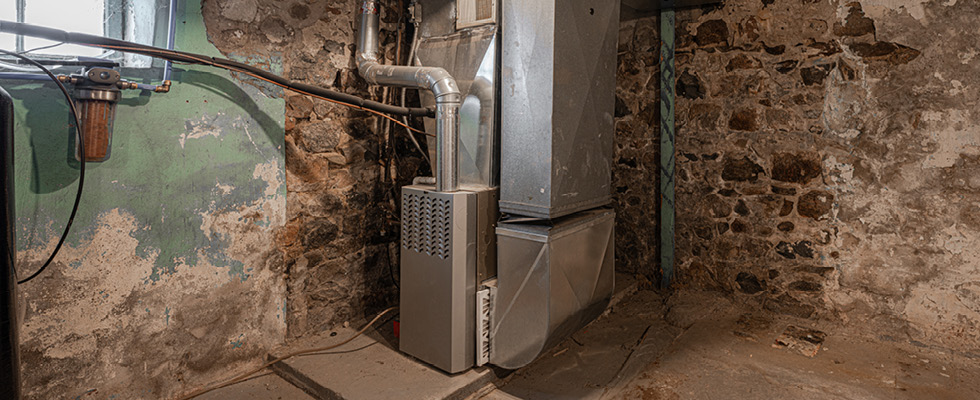
In a split decision, the Court of Appeals of North Carolina recently reversed a trial court’s summary judgment order in a residential gas explosion lawsuit, sending the claim against the property’s landlord to a jury. The gas supplier was also sued but apparently settled with the plaintiff. The case is Terry v. Public Service Company of North Carolina.
Crawl Space
In September 2006, Stephanie Terry entered a written lease with William Lucas for a house in Durham, North Carolina. Stephanie and her husband, Anthony, then moved into the home, which had a crawl space below the first floor. Inside the crawl space was a gas water heater and furnace. The furnace was located under the home’s single bathroom. In January 2017, the Terry family was on their way back from taking their oldest son to college when Stephanie received a phone call from her brother informing her that he had seen a Public Service Company of North Carolina (PSNC) truck and fire truck at the Terry home. He also told Stephanie that a neighbor had reported smelling natural gas near the home. When the Terrys returned from their trip, there was no one at their home and they received no follow-up information from PSNC, their landlord or the fire department.
Continued Gas Odor
In March 2017, Anthony smelled natural gas while in the front yard of his home. In the same month, a neighbor informed him that she smelled natural gas around the Terry home. In mid-March 2017, the fire department and PSNC technicians came to the Terry house after a report from someone in the neighborhood about the smell of gas.
PSNC technicians used what Anthony later identified as “leak detectors” around manhole covers near the house and around the meter at the residence. A PSNC technician informed Anthony at that time that they did not identify any leaks around the fitting of the meter. They apparently did not check inside the house.
Explosion
A few weeks later, on April 13, Anthony and Stephanie were at home when Anthony walked into the bathroom at approximately 6 p.m. Immediately as he turned on the light, there was an explosion. This explosion caused Anthony’s clothes to catch on fire, resulting in burns over much of his body. He was in a coma at the burn center of the University of North Carolina at Chapel Hill Hospital from April 2017 until August 2017.
On Sept. 21, over five months after the explosion, Anthony was discharged from the hospital. Following his release, he returned to the hospital on a bi-weekly, then monthly, basis until he was fully released from care at the end of 2018. He continued to suffer constant pain in his legs and feet, nerve damage in his left hand and was bed-bound for most of his daily life.
Corroded Gas Pipe
After the explosion, the floor of the bathroom was removed for replacement, revealing a severely rusted and corroded pipe leading from the gas meter to the home’s furnace. The landlord, Lucas, had not conducted an inspection of the home’s furnace, the pipes leading from the gas meter or any other part of the property since the time the Terry family moved into the home in 2006. Lucas did conduct a move-out inspection before the Terry family moved in. That inspection did not involve going into the crawl space to examine the furnace or the pipes leading from the gas meter. Anthony Terry filed suit against PSNC, claiming negligence in failing to inspect and find the corroded gas line. Anthony asserted the same negligence claim against Lucas and also claimed violations of North Carolina’s Residential Rental Agreements Act (RRAA).
Gas Supplier Settlement
Lucas responded with a motion for summary judgment, asking for a dismissal of all claims. At the same time, Anthony filed a notice of voluntary dismissal of the claim against PSNC. This almost certainly signified that Anthony had reached a confidential out-of-court settlement with PSNC. So, the case continued against Lucas alone.
The trial court granted Lucas’ summary judgment motion, and Anthony appealed. In considering the appeal, a three-judge panel of the appellate court first addressed the claim of negligence by Lucas. Should Lucas, as landlord, have inspected the gas piping in the crawl space and found the corroded pipe?
The court recognized there is no general duty on the part of a landlord in North Carolina to conduct periodic general inspections of rental property. However, it stated that a landlord must inspect if they “know or in the exercise of ordinary care should have known” of an unsafe condition on the property.
Debris in the Backyard
Of course, Lucas knew nothing about the reports of gas odor on the premises, and certainly was not told there were dangerously corroded gas pipes in the crawl space. So, the question was, should he have known? The court said yes:
“Here, evidence was introduced that defendant had not performed any inspection of plaintiff’s property during the entirety of plaintiff’s lease — a period of more than 11 years. Defendant also testified at his deposition that, at the time the tenants prior to plaintiff moved out of the property, he conducted a ‘move out inspection,’ but that this inspection did not involve an examination of the furnace or pipes located in the crawl space under the bathroom.
“Further, in the summer of 2016, defendant saw debris in plaintiff’s backyard and became upset at how the property was being maintained. However, despite his concerns, defendant did not conduct inspections of any other portions of the property to make sure they were being appropriately maintained.”
The fact that no inspections had been done for 11 years, plus Anthony’s apparent failure to maintain the yard, should have been enough, in the court’s opinion, to prompt an inspection of the crawl space. It held that there was enough evidence to allow a jury to consider the negligence claim against Lucas.
Necessary Repairs
The court then addressed the Residential Rental Agreements Act. Anthony claimed that Lucas failed to maintain the gas furnace and associated piping “in a manner that was safe for tenant occupancy.”
The court agreed, finding that the RRAA creates a statutory duty to “make all repairs and do whatever is necessary to put and keep the premises in a fit and habitable condition.” There was, in the court’s view, evidence that Lucas violated that statutory duty:
“Just as the evidence presented by defendant and plaintiff creates a question of fact about whether defendant’s actions constituted ‘reasonable care,’ that same evidence presents a jury issue about whether defendant did ‘whatever necessary’ to maintain the premises in a fit and habitable condition.”
The court sent the case back to the trial court for a jury trial on the negligence and RRAA claims against Lucas. However, one of the three judges dissented from the ruling. In his view, the existence of a messy yard was simply not enough to give Lucas constructive notice of badly corroded gas piping in the crawl space.
In addition, the dissenting judge pointed to a notice provision in the RRAA that required that a tenant give written notice to the landlord of a potentially hazardous condition in the rental property. This would prompt a duty to inspect. Anthony gave no such notice to Lucas.


